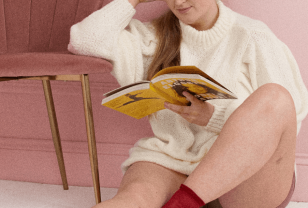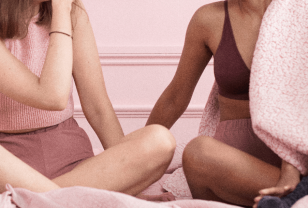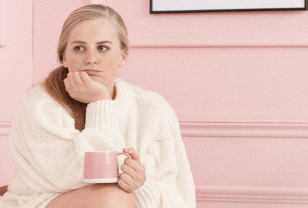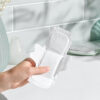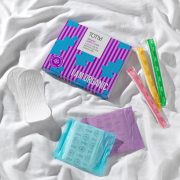Today we’re talking about switching to a menstrual cup if you have Endometriosis (featuring a switch story from an EndoWarrior and a gynecologists’ opinion on cups!)
There are many reasons why you might be curious to switch to a menstrual cup. It could be for their sustainability, or because you buy once and can reuse it for years. But can you use a menstrual cup if you have Endometriosis?
Now first things first, it’s important to acknowledge that if you do have Endometriosis (or any gynaecological condition) it’s always crucial to consult with a medical professional before using a product such as a menstrual cup. Everyone is different, and a professional such as your gynaecologist can offer you advice as to whether this will be worth trying or not.
Can you use a menstrual cup if you have Endometriosis?
You only have to Google ‘menstrual cup and endometriosis’ to see that there is much being said about this online. This is following a petition submitted in the US claiming a link between Endometriosis and menstrual cups. The lack of clinical data has left this at a standstill.
On the other hand, cup brands, Endo warriors and other experts have come forward to say you can use a cup if you have Endometriosis. So, it’s a very confusing situation for any Endo Warrior looking to switch to a cup!
Endo Warrior: I made the switch!
We caught up with our period pioneer and fellow Endo warrior, Jaimee Rae McCormack. Jaimee switched to the cup a few months ago and here she talks about how she finds using the cup with having Endometriosis:
What motivated you to try the menstrual cup?
“It’s thanks to the informative posts that TOTM share that I was really motivated at the thought of trying the menstrual cup. I had very little knowledge before on how much waste is produced just from period care alone. So, finding out the facts made me want to do my bit to help the environment.”
What are the thoughts on menstrual cups in the Endo community?
“I think that a lot of women in the Endo community may be intimidated at the thought of trying the menstrual cup. Mainly because of being uncomfortable from using normal period products for years… hopefully, I can help encourage others to give it a go.”
Did you find it tricky the first time you used it?
“For me, it did feel strange at first but once I used it for a flow or two, it had already become second nature. I don’t think that I’ll ever look back!”
As an Endo Warrior, how did you find using a menstrual cup?
“Honestly before I made the switch to organic tampons and liners, I would have been nervous at the idea of even trying the cup. I used to experience so much pain it put me off wanting to use anything.
If you are scared to try it just yet, perhaps make the change to organic products first so that it’s not so daunting and take it from there.”
What advice would you give anymore looking to try a menstrual cup?
“Give it a go! Don’t be scared of the cup or your body. Try to relax as much as you can when you first use it, as the more relaxed you are the easier it will feel getting used to something new.”
Going forward, what will you be using on your period?
“I will definitely be moving forward with the menstrual cup in the future. Although I will keep a backup pack of organic tampons in the cupboard just in case. I think it’s been embedded into my brain that I have to have tampons everywhere I go… slowly retraining myself!”
Gynae opinion on menstrual cups and Endometriosis
It’s encouraging to see that Jaimee has had a positive experience switching to a cup. But to question this further, we spoke to Ms Anne Henderson, our consultant gynaecologist. Anne advised us:
“There shouldn’t be any contraindications at all as there’s no evidence that menstrual cups are associated with back flow of menstrual blood…I always recommend my endo patients to use organic whenever possible. Cups may also be more comfortable than tampons for those women who experience vaginal pain with endometriosis.”
Your body, your choice
Ultimately this is what it comes down to – understanding your body and making an informed decision on what works best for you. As mentioned above, it’s useful to chat to your GP or gynaecologist. This would be the case for anyone with a gynaecological condition who’s considering switching to a cup.
Our golden rule with cups is to be careful what advice you read online and stick to sensible hygiene practice. Never leave the cup in for 24 hours for example, because it’s not healthy to leave anything inside your body for such a long duration of time.
We recommend emptying your cup every 4-6 hours where possible and be sure to always rinse between use and sterilise between cycles.
Who knows, you might find a cup works better for you! It can help you understand your flow, how heavy you bleed and how your blood changes during menstruation.
Thanks to Jaimee and Ms Anne Henderson for their comments on this blog. If you have questions on this topic, please drop a comment below or chat to us on socials – @totmorganic. For more #SwitchStories, catch up on this post with real-life experience of switching to eco period care alternatives.

